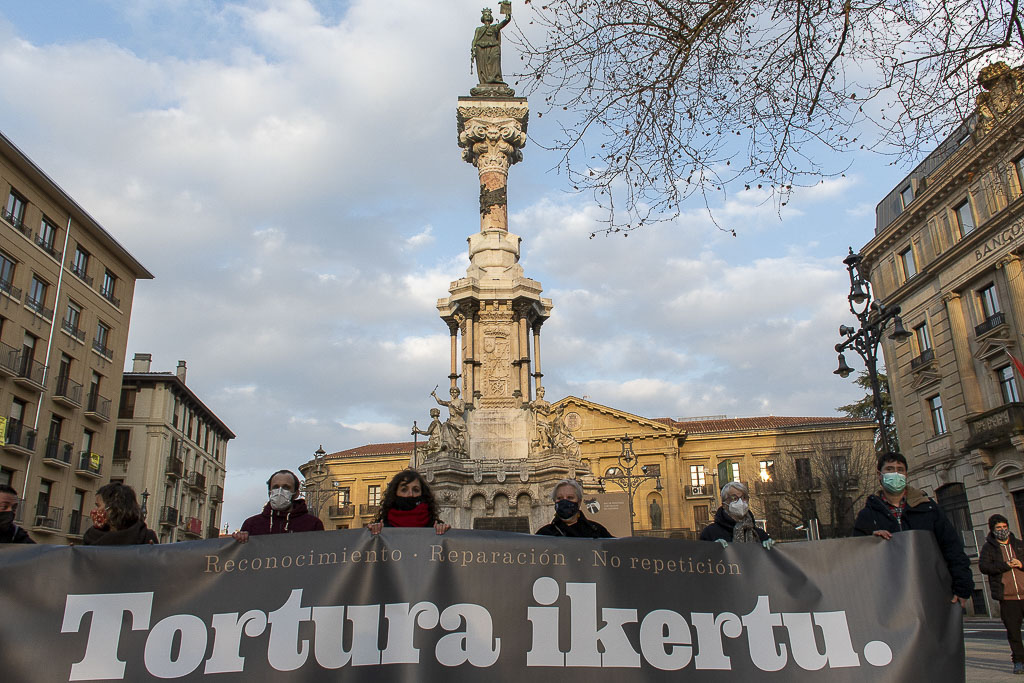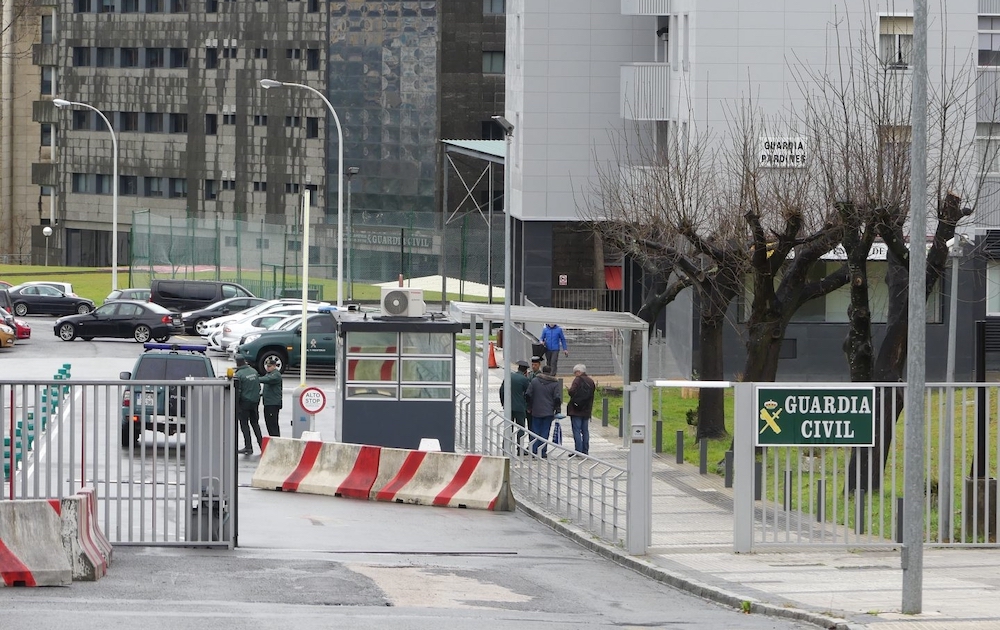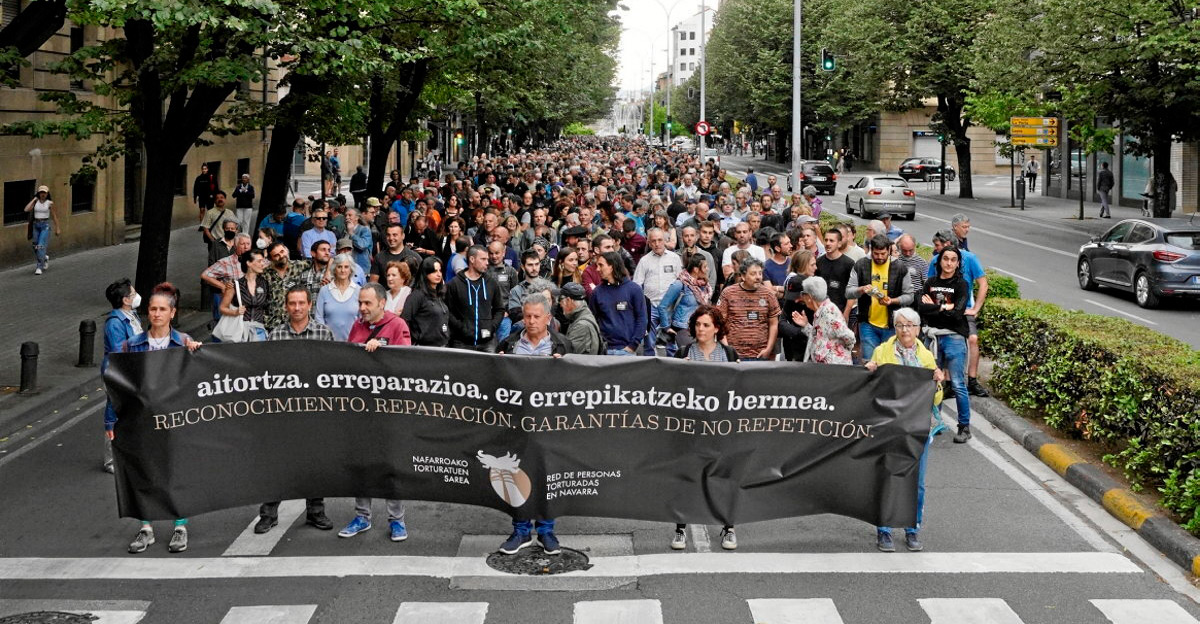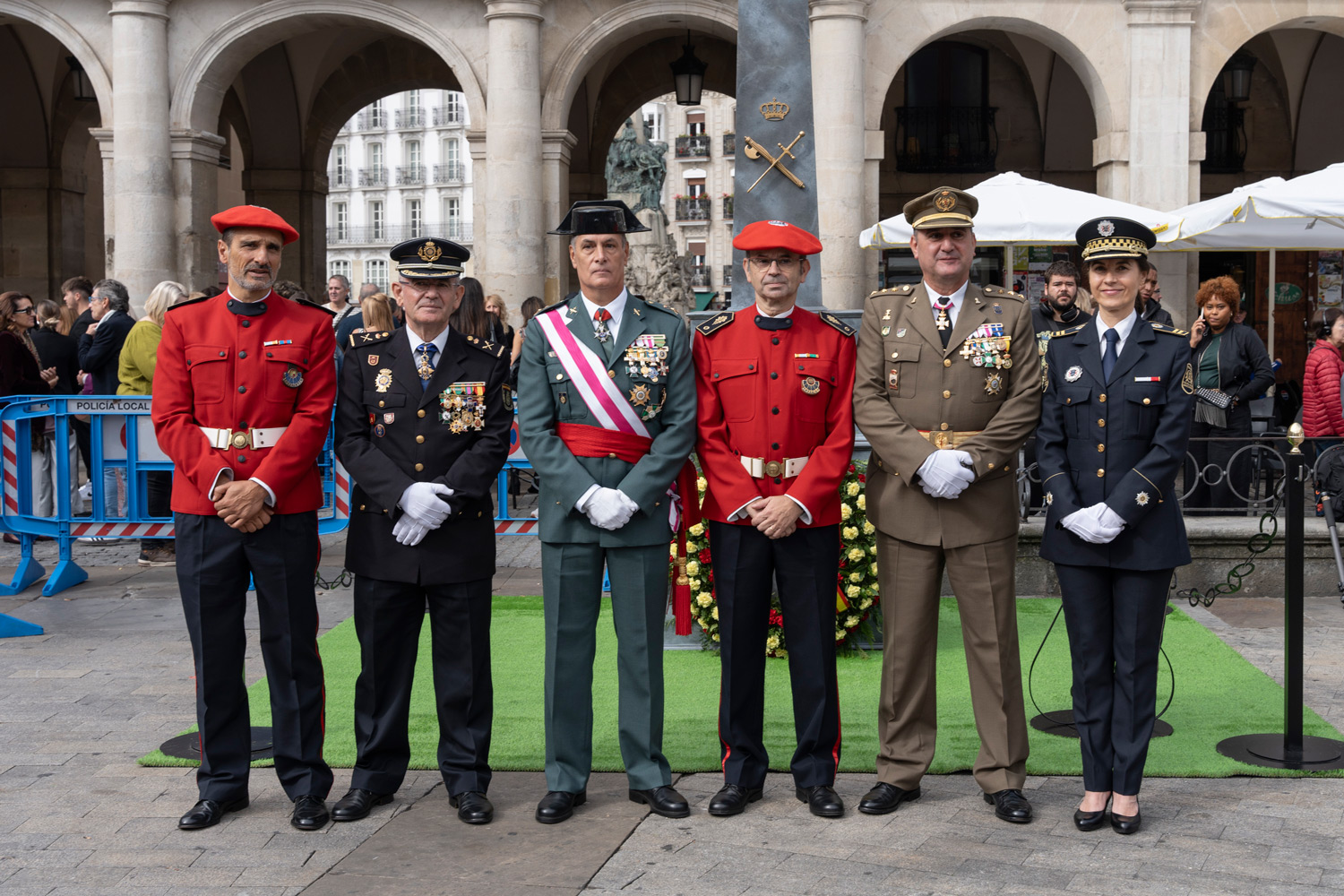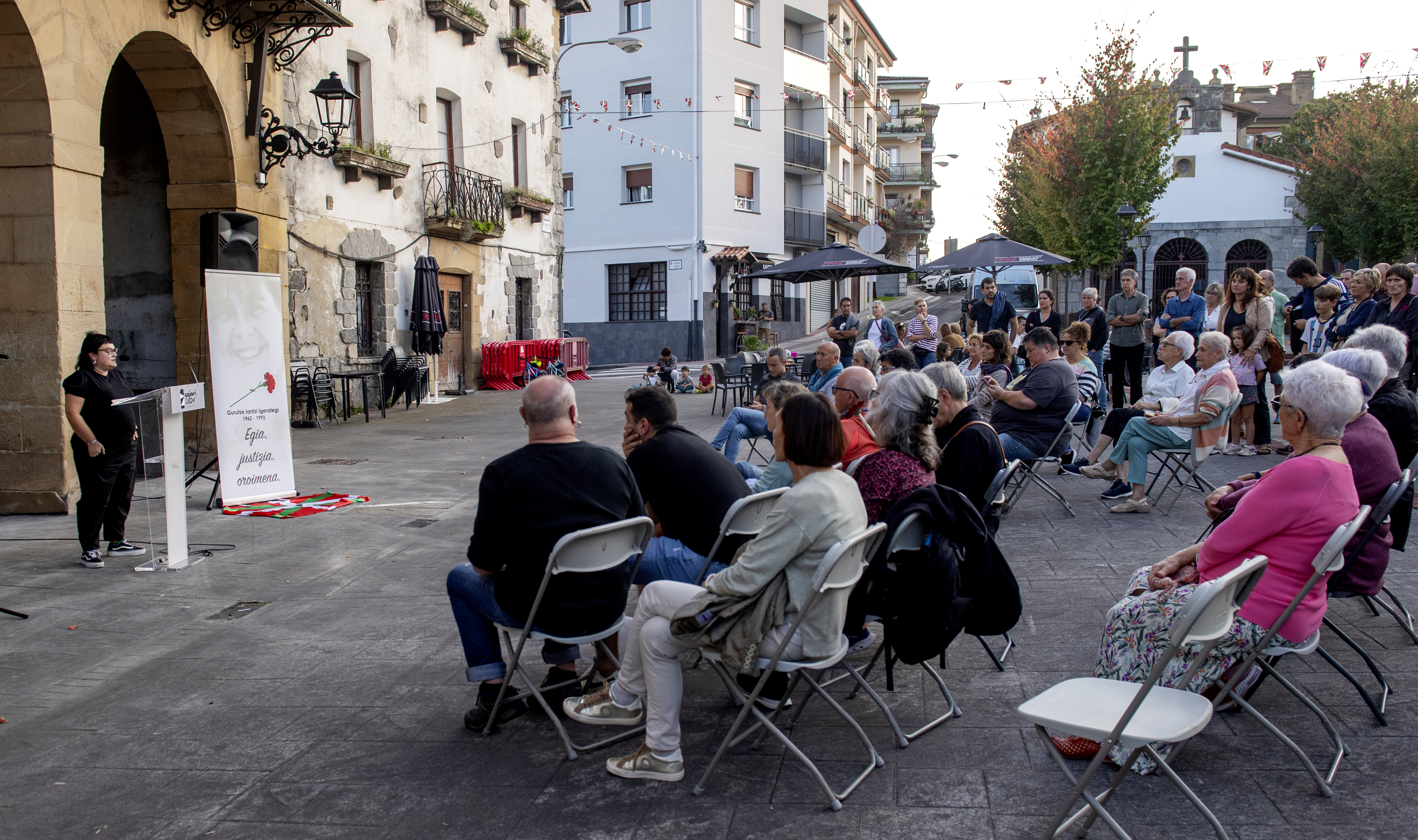Nekane Txapartegi has not declared in court not to enter the game Spain-Switzerland
- Nekane Txapartegi had been summoned to testify by the National Court on 22 May in Bilbao. 200 people met in solidarity with the Berne court. He also refused to declare by videoconference, with the aim of "not entering into this game between the Spanish State and the Swiss". International solidarity is moving forward and the Basque political refugee must wait for what the two states decide in the coming months. In an interview with the broadcaster Hala Bedi Irratia, he pointed out that "this new cause will serve to internationalize the Basque conflict and sexist torture".

"It does not surprise me, because we know very well the thirst for revenge of the Spanish State and we are not surprised at anything. In Switzerland people do not understand how it is possible, because in the first attempt the Spanish state did not succeed and the warning was clear: there were torture and there would be no extradition. Although it was eventually given a legal solution, we believe that this legal solution was given by the pressure and the campaign there was, that is, that we somehow forced them to come up with a solution.
Now they come back blatantly, and the people here ask, "But don't they learn?" '. We know the disturbing colonizing mentality behind it. I believe that in their strategy they need figures such as witches, to legitimize their entire repressive apparatus and to be able to continue working. Anti-terrorist legislation is still in force. How is it possible if there is no armed struggle? Why are they prepared to use these special laws? Before they wanted me, they haven't, and now they're going to try and build a construct around me. But they're used to it, they've been doing it all these years, breaking the way they want international law under the name of terrorism, because they've also had total support from Europe."
Txapartegi underlined the urgency of his request for asylum to Switzerland: "The Free Nekane campaign showed systematic torture, not yet two years ago that I have been freed and the issue is very present. Therefore, if they return now, the Swiss government will have to position itself on the subject of torture. This cause shows that there were reasons for political asylum that I asked for, that there is political persecution. It will again be a political judgment. It will allow us to be subjected to sexist torture and to the internationalisation of the Basque conflict".
22 May in Bern
In the photos disseminated by Bilgune Feminista on social networks you can see the concentration summoned on 22 May before the Berne court by the Swiss leftist movements:


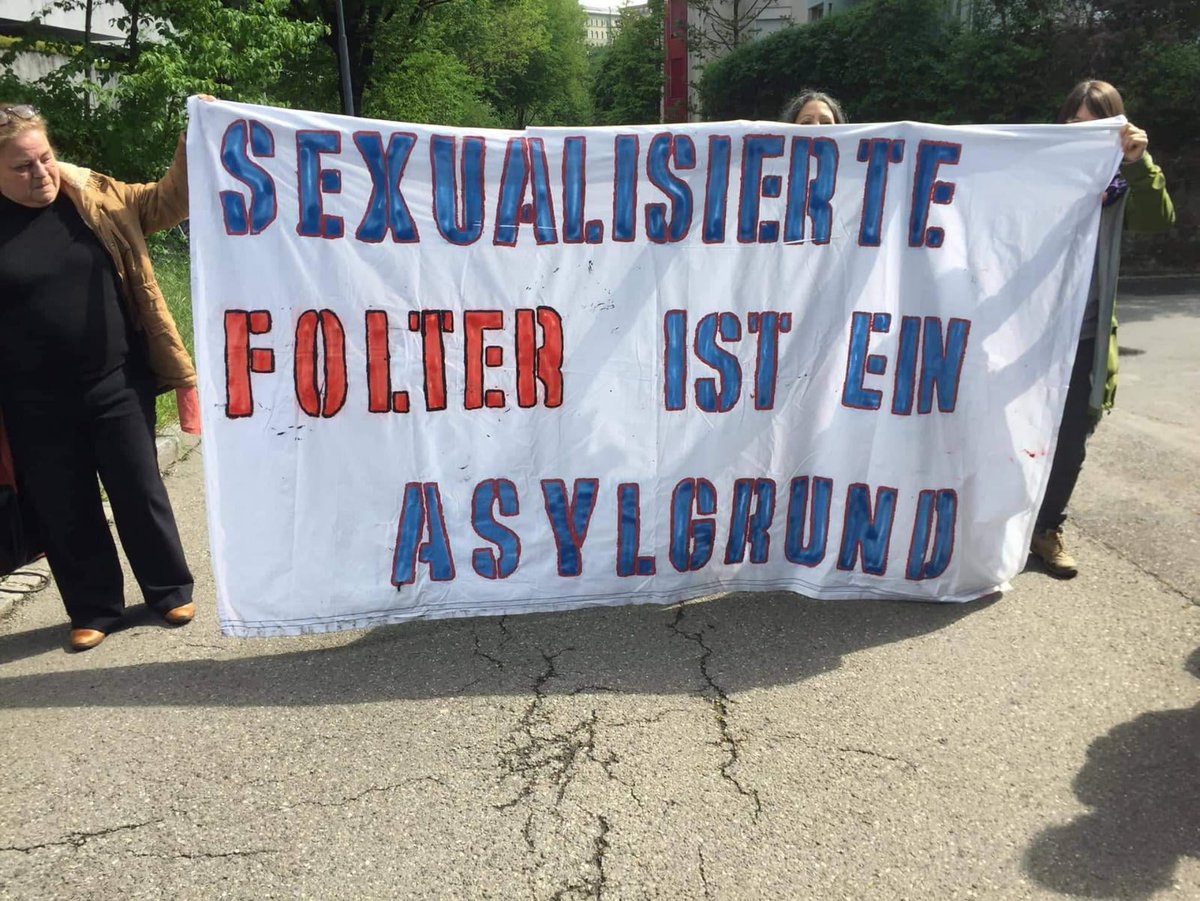
Lora Irratia picked it up in the video:
Rund 200 Menschen speak Nekane heute Vormittag zum Ewinter ahmezentrum in Bern begleitet. Eine von uns! Sexualisierte Folter ist ein Asylgrund!#freenekane pic.twitter.com/XX21UvqL6y
— Radio LoRa (@lora_radio) May 22, 2019
First messages of international solidarity
From Córdoba, the Assembly "No Less" has shown its solidarity through a video published on Twitter.
Euskal Herriko Bilgune Feminist members also moved to Switzerland and broadcast the video message.
Today, Nekane is back in danger! Once again, a clear example of political persecution and that patriarchal justice continues to protect Sexist torture.
Here's the message sent from Switzerland: pic.twitter.com/a0aiQNY8aI
— Bilgune Feminist (@ehbfeminist) May 22, 2019
The National and International Council for Popular Communication (CONAICOP) has expressed its solidarity with Txapartegi and has called on the Government of Switzerland to designate Txapartegi as political or humanitarian asylum.
The cause so far prescribed
Txapartegi was arrested on 9 March 1999 and subjected to torture for a crime of male violence. With only these statements being made under torture the only evidence against him, he was tried at the macro trial of 18/98 and sentenced to 11 years in prison by Judge Baltasar Garzón in December 2007.
Txapartegi, who did not accept the sentence, moved to Switzerland, where he resides with his daughter, whom he married. In 2015, the Council of Ministers filed a request for extradition and on 6 April 2016 the Swiss Government imprisoned her. The Free Nekane campaign was launched by several left-wing organizations in Switzerland and the petition against extradition became very strong. On 15 September 2017 he was released, as the Supreme Court lowered his sentence in February to 3 years and 6 months and declared it prescribed.
The interview in No. 2627 of ARGIA explains all this detail.
For almost a century, there has been no generation in the Basque Country that has not known torture. There are 5,379 people officially since 1960, but there are many more, because appearing publicly as tortured still hurts. And probably because nothing has changed at the base... [+]
Otsailaren 13a Torturaren Kontrako eguna izanki, Euskal Herriko Torturaren Sareak gutun publiko bat igorri du. Poliziek torturatu euskal jendeen lekukotasunak bildu, eta aitortza egiteko xedea du sare berri horrek Euskal Herri osoan. Torturatuak izan diren 5.000 pertsonei... [+]
Jar gaitezen 2025erako proposamen politiko gisa, Espainiako Auzitegi Kolonialaren (AN) epai guztiak berrikusten hasteko eta makila bakoitzak bere belari eusteko.
Unionismoarekin lerrokatutako alderdi, sindikatu eta gizarte-erakunde gehienek, eta ez bakarrik horrela... [+]
This year marks the 51st anniversary of the United Nations proclamation of International Human Rights Day on 10 December. This date has become important in Euskal Herria and the Human Rights Observatory of Euskal Herria wants to offer some elements of reflection.
Progress on... [+]
In 2006, Baltasar Garzón, then star judge, suffered a kind of revelation and drafted a practice that guaranteed the rights of those detained for terrorism. The same judge saw hundreds of incommunicado detainees pass through his room, many with obvious signs of ill-treatment,... [+]
“In the newsletter today at noon, you will see the mayor of your capital, offering the main plaza of the city to the military body that tortured us. In today’s information at noon, you will see the structure that murdered our friends and relatives unravel through our... [+]
“In the newsletter today at noon, you will see the mayor of your capital, offering the main plaza of the city to the military body that tortured us. In today’s information at noon, you will see the structure that murdered our friends and relatives unravel through our... [+]










